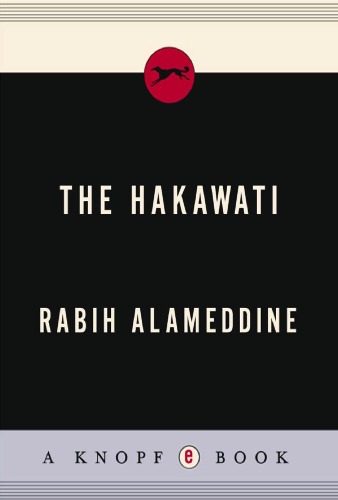
The Hakawati
کتاب های مرتبط
- اطلاعات
- نقد و بررسی
- دیدگاه کاربران
نقد و بررسی

Starred review from February 25, 2008
Stories descend from stories as families descend from families in the magical third novel from Alameddine (I, the Divine
), telling tales of contemporary Lebanon that converge, ingeniously, with timeless Arabic fables. With his father dying in a Beirut hospital, Osama al-Khattar, a Los Angeles software engineer, returns in 2003 for the feast of Eid al-Hada. As he keeps watch with his sister, Lina, and extended family, Osama narrates the family history, going back to his great-grandparents, and including his grandfather, a hakawati
, or storyteller. Their stories are crosscut with two sinuous Arabian tales: one of Fatima, a slave girl who torments hell and conquers the heart of Afreet Jehanam, a genie; another of Baybars, the slave prince, and his clever servant, Othman.
Osama's family story generates a Proustian density of gossip: their Beirut is luxuriant as only a hopelessly insular world on the cusp of dissolution can be; its interruption by the savagery that takes hold of the city in the '70s is shocking. The old, tolerant Beirut is symbolized by Uncle Jihad: a gay, intensely lively storyteller, sexually at odds with a society he loves. Uncle Jihad's death marks a symbolic break in the chain of stories and traditions—unless Osama assumes his place in the al-Khattar line. Almost as alluring is the subplot involving a contemporary Fatima as a femme fatale whose charms stupefy and lure jewelry from a whole set of Saudi moneymen, and her sexy sister Mariella, whose beauty queen career (helped by the votes of judges cowed by her militia leader lovers) is tragically, and luridly, aborted.
Alameddine's own storytelling ingenuity seems infinite: out of it he has fashioned a novel on a royal scale, as reflective of past empires as present.

Starred review from March 1, 2008
Alameddine ("Koolaids; The Perv") assumes the role of a "hakawati", a Middle Eastern storyteller, in a tour de force that interweaves at least five separate narratives into an exquisite tapestry in the denouement. He spins the story of Osama al-Kharrat, a Lebanese American returning to Beirut to sit at his dying father's bedside; the al-Kharrat family's rise to prominence, from its beginnings in a Lebanese Druze village and a Turkish Armenian village; the Mameluk warrior Baybars, known for his victory over the Mongols; the mythic Fatima, who became the consort of the jinni Afrit-Jehanam; and, above all, the disintegration of a tolerant, civilized Lebanon into a battleground for competing religions, ethnicities, and ideologies. Each narrative is further enhanced by smaller stories about raising pigeons and playing traditional melodies as well as tales drawn from the Koran, the Bible, "The Arabian Nights", Ovid, Shakespeare, and every person who ever spoke to the author. This magical novel is epic in proportion and will enchant readers everywhere. Recommended for all libraries.Andrea Kempf, Johnson Cty. Community Coll. Lib., Overland Park, KS
Copyright 2008 Library Journal, LLC Used with permission.

Starred review from March 15, 2008
A hakawati is a storyteller in the Arab world, and so opulent and picaresque is Alameddines novel, it can serve as a great fake book for aspiring Scheherazades. In this grand saga of a Beirut family with Armenian, English, and Druze roots, Alameddine, the author of three previous works of fiction, constructs stories within stories that encompass the world of the jinni, the tales of Abraham and Hagar, the legendary pigeon wars of Urfa, Lebanons brutal civil war, and post-9/11 Beirut and L.A. At the center of this matrix is Osama al-Kharrat (his last name means exaggerator), grandson of a hakawati and son of a wealthy car dealer and a glamorous, sharp-tongued mother, one of many resplendently witty and wily women characters. After living in L.A. for 26 years, Osama has finally returned to Beirut in 2003 because his father is dying. His arrival sets off a cascade of memories and launches1,001 stories. The most thrilling involve the legendary Fatima, the hero Baybars, Osamas bon vivant uncle Jihad, and the hakawati himself, not to neglect the many diverting parables. Alameddine, himself a brilliant hakawati, exuberantly reclaims and celebrates the art and wisdom of the war-torn Middle East in this stupendous, ameliorating, many-chambered palace of a novel.(Reprinted with permission of Booklist, copyright 2008, American Library Association.)

























دیدگاه کاربران